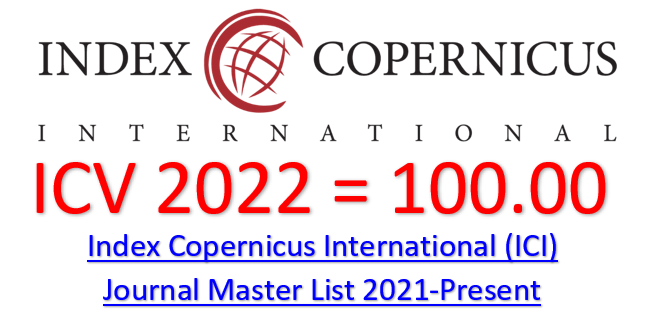Behavioral Differences In Seeking Help For Mental Health Among Generation Z From The Kodi People Group And The Madurese Ethnic Group
DOI:
https://doi.org/10.55018/janh.v4i1.57Keywords:
Mental Health, Help Seeking, Generation Z, Kodi, MadureseAbstract
Background: mental health problems in generation Z of the Kodi People Group and Madurese ethnic group in their behavior in seeking mental health assistance. The purpose of this study is to analyze the differences in the behavior of mental help seeking from Generation Z in the Kodi people group and Madurese ethnic group.
Methods: This research used quantitative research method, namely, the survey method. The subjects of this study were Generation Z from the Kodi people group and the Madurese who have experienced mental health problems such as stress, anxiety, depression, suicidal thought, drug use, and physical illness. The sampling technique used was purposive sampling with a total of 200 respondents from Generation Z. This study used the instrument of General Help-Seeking Questionnaire Vignette Version (GHSQ-V). The hypothesis test in this study was a paired t-test.
Results: 33% of respondents from the Kodi people group had behavior in seeking mental health assistance that was categorized as "high". Meanwhile, respondents from the Madurese ethnic group also had behavior that was categorized as "high", which was 33.5%. The Results of T-Test Analysis of Behavior in seeking mental health assistance among Generation Z from the Kodi people group and the Madurese ethnic group was 0.905
Conclusion: it can be said that there is no significant difference in the behavior of seeking mental health help between Generation Z of the Kodi people group and the Madurese ethnic group. The recommendation of this research is as a preliminary study in culturally sensitive based mental health nursing. so that future research can use culturally sensitive-based mental health nursing interventions
Downloads
References
Abdi Mahsa Rizqi; Silvia Eka Mariskha; Myretha Trifina sari. (2014). Pengaruh Self-Stigma Dan Public Stigma Terhadap Help-Seeking Behavior Pada Mahasiswa Dengan Tingkat Kesehatan Mental. Paper Knowledge . Toward a Media History of Documents, 1.
Agustine, U., & Karahanau, M. U. K. (2018). Survei Penderita Gangguan Jiwa di Kecamatan Kota Waingapu Kabupeten Sumba Timur Tahun 2017. Jurnal Kesehatan Primer, 3(1), 8–15.
Alfianto, A. G., Apriyanto, F., Diana, M., Studi, P., Keperawatan, I., Widyagama, S., & Malang, H. (2019). Pengaruh Psikoedukasi Terhadap Tingkat Pengetahuan. JI-KES: Jurnal Ilmu Kesehatan, 2(2), 37–41.
Alfianto, A. G., & Jayanti, N. D. (2020). Pisang Gen Alfa: A Smartphone Application To Reduce Parenting Stress For Parents With Alpha Generations. Media Keperawatan Indonesia, 3(3), 121. https://doi.org/10.26714/mki.3.3.2020.121-128
Alfianto, A. G., Safitri, A., Studi, P., & Keperawatan, I. (2019). Efikasi Diri Siswa Dengan Tanda Gejala Psikosis Awal Dalam. 3(1), 7–11.
Anjara, S. G., Brayne, C., & Van Bortel, T. (2021). Perceived causes of mental illness and views on appropriate care pathways among Indonesians. International Journal of Mental Health Systems, 15(1), 1–14. https://doi.org/10.1186/s13033-021-00497-5
Care, D., & Suppl, S. S. (2020). Classification and diagnosis of diabetes: Standards of Medical Care in Diabetes-2020. Diabetes Care, 43(January), S14–S31. https://doi.org/10.2337/dc20-S002
Handayani, I. (2019). Konsep Bimbingan dan Konseling Pribadi-Sosial dalam Pengembangan Positive Mental Attitude Generasi Z. NALAR: Jurnal Peradaban Dan Pemikiran Islam, 3(1), 51–63. https://doi.org/10.23971/njppi.v3i1.1283
Jaciow, M., & Wolny, R. (2021). New technologies in the ecological behavior of generation Z. Procedia Computer Science, 192(2019), 4780–4789. https://doi.org/10.1016/j.procs.2021.09.256
Jung, H., von Sternberg, K., & Davis, K. (2017). The impact of mental health literacy, stigma, and social support on attitudes toward mental health help-seeking. International Journal of Mental Health Promotion, 19(5), 252–267. https://doi.org/10.1080/14623730.2017.1345687
Kikuchi, S., Murakami, K., Obara, T., Ishikuro, M., Ueno, F., Noda, A., Onuma, T., Kobayashi, N., Sugawara, J., Yamamoto, M., Yaegashi, N., Kuriyama, S., & Tomita, H. (2021). One-year trajectories of postpartum depressive symptoms and associated psychosocial factors: findings from the Tohoku Medical Megabank Project Birth and Three-Generation Cohort Study. Journal of Affective Disorders, 295(April), 632–638. https://doi.org/10.1016/j.jad.2021.08.118
Laksono, A. D., & Wulandari, R. D. (2019). Determinant of the puskesmas utilization in Madura Island. Indian Journal of Public Health Research and Development, 10(11), 1744–1749. https://doi.org/10.5958/0976-5506.2019.03802.6
Mahendradhata, Y., Trisnantoro, L., Listyadewi, S., Soewondo, P., MArthias, T., Harimurti, P., & Prawira, J. (2017). The Republic of Indonesia Health System Review (Vol. 7, Issue 1).
Olivari, C., & Guzmán-González, M. (2017). Validación del cuestionario general de búsqueda de ayuda para problemas de salud mental en adolescentes. Revista Chilena de Pediatria, 88(3), 324–331. https://doi.org/10.4067/S0370-41062017000300003
Rahmatullah, I. A. (2021). JIWA KOLABORASI METODE RUQYAH DAN HIPNOTERAPI DI LEMBAGA EL-PSIKA AL-. 2(2), 111–122.
Riskesdas, K. (2018). Hasil Utama Riset Kesehata Dasar (RISKESDAS). 44(8), 1–200. https://doi.org/10.1088/1751-8113/44/8/085201
Sariguna, P., & Kennedy, J. (2021). Diskusi Mengenai Pelayanan Kesehatan Dasar Di Daerah Perbatasan Provinsi Nusa Tenggara Timur , Kabupaten Malaka. Prosiding Seminar Nasional Penelitian Dan Pengabdian 2021, 768–776.
Verma, D., BHARDWAJ, R., & SACHAN, R. (2019). the Characteristic Behavioural Traits of Generation-Z a Study in Rural Demography Set Up of India, Sonbhadra, U.P. Journal of Management, 6(1), 55–61. https://doi.org/10.34218/jom.6.1.2019.006
Downloads
Published
How to Cite
Issue
Section
License

This work is licensed under a Creative Commons Attribution-ShareAlike 4.0 International License.

























